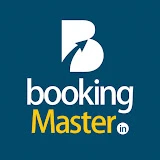Technology is reshaping hotel management, and selecting the right Hotel Property Management System (PMS) is crucial. Hotels must choose between cloud-based PMS and on-premise PMS. Each has its benefits and drawbacks, affecting efficiency, cost, and scalability. Let’s explore the key differences to help you make an informed decision.
1. Understanding Cloud-Based vs. On-Premise PMS
A cloud-based PMS is hosted on external servers and accessed via the internet. It allows hotel staff to manage operations remotely, with automatic updates and lower IT costs.
An on-premise PMS is installed on hotel-owned servers, requiring in-house IT maintenance. It provides full control over data and system security but demands higher infrastructure investment.
2. Key Factors to Consider When Choosing a PMS
A. System Requirements
- Cloud PMS: Requires only an internet connection and a device to access the software.
- On-Premise PMS: Needs dedicated hardware, IT staff, and data storage infrastructure.
B. Installation & Maintenance
- Cloud PMS: Quick setup, minimal maintenance, automatic software updates.
- On-Premise PMS: Complex installation, manual updates, and higher maintenance costs.
C. Data Security
- Cloud PMS: Uses encrypted cloud storage with strict security measures. Most vendors follow PCI DSS compliance for guest data protection.
- On-Premise PMS: Security depends on in-house IT teams, with risks of data loss due to system failures or breaches.
D. Accessibility & Remote Management
- Cloud PMS: Accessible from any location, allowing hoteliers to manage bookings remotely.
- On-Premise PMS: Limited to on-site use, restricting operational flexibility.
E. Cost & Pricing Models
- Cloud PMS: Subscription-based pricing with flexible plans, reducing upfront investment.
- On-Premise PMS: Requires high initial capital for hardware and licensing, along with recurring maintenance costs.
F. Integration with Other Hotel Systems
- Cloud PMS: Easily integrates with revenue management software hotel booking software and third-party tools.
- On-Premise PMS: Limited integration options, often requiring custom development.
3. Impact on Hotel Operations & Revenue
A well-chosen PMS improves efficiency and revenue management. Cloud PMS allows real-time rate adjustments, demand forecasting, and seamless OTA connectivity. A Hotel Property Management System integrated with revenue management hotel booking software ensures optimal pricing strategies, maximizing occupancy and revenue.
4. Conclusion: Which PMS is Right for Your Hotel?
- Cloud-based PMS is ideal for hotels seeking flexibility, lower costs, and easy integration.
- On-premise PMS suits large hotels needing full control over data and customization.
With the hospitality industry shifting towards digital transformation, many hotels prefer cloud solutions. Booking Master, a leading hotel management software, helps hotels optimize operations with advanced cloud-based PMS solutions.


